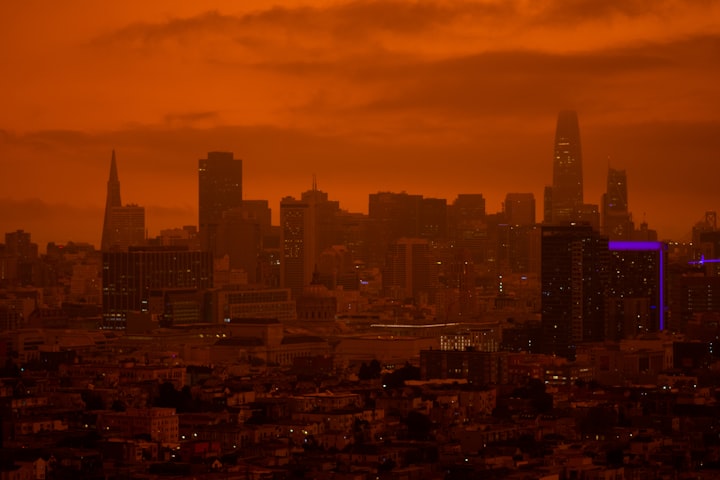Commemorating the Holocaust During the Covid-19 Pandemic
Historians fear that the memory of the Holocaust is fading

In his famous poem “If This Is A Man,” Italian Holocaust survivor and writer Primo Levi urges readers to “never forget” the crimes committed during the Holocaust and pass the memory of the genocide down to their children. “Meditate that this came about,” writes Levi. “I commend these words to you. Carve them in your hearts, at home, in the street. Going to bed, rising. Repeat them to your children. Or may your house fall apart, may illness impede you, may your children turn their faces from you.”
A Fading Memory
In November 2005, the United Nations General Assembly established 27 January — the anniversary of the liberation of infamous concentration and death camp Auschwitz-Birkenau by the Russian Red Army — as International Holocaust Remembrance Day to honor the victims of the crimes perpetrated by the Nazi regime and its collaborators and promote educational programs to prevent such horrors from happening again. National institutions, museums, and memorial sites annually hold commemorative ceremonies from 27 January to April/May.
In recent years, there’s growing concern that the memory of the crimes committed in concentrations and death camps is fading among the younger generations. As historical sensitivity is fading, episodes of desecration and misuse of memorial sites have been increasing. In January 2021, for example, the Buchenwald memorial in Germany urged people to “show respect for the victims” of the former concentration camp after some visitors went sledding “near and even on the graves.”
In particular, historians and other scholars fear that as the number of survivors and eyewitnesses to the genocide is steadily decreasing, the memory of the Holocaust will be more susceptible to manipulation and denial. In 2020, only 200 survivors were able to attend the ceremony to commemorate the 75th anniversary of the liberation of Auschwitz-Birkenau. Most of them are over 90 and suffer from frail health.
Today, preserving the memory of the Holocaust is more urgent than ever. As seniors are more likely to be infected and to suffer a fatal case of Covid-19, the pandemic threatens to sever the younger generations’ links to the past and to halt the transfer of cultural knowledge and historical responsibility from one generation to the next.
Memory and Identity
At the beginning of his Histories, Herodotus, traditionally considered to be the “father of history”, stated that the purpose of his work was “to prevent the traces of human events from being erased by time.” Ever since the first historians and scholars started to keep written records of present and past events and arrange them in historical narratives, they stressed the need to study the past to understand the present. “To be ignorant of what occurred before you were born is to remain always a child — claimed Marcus Tullius Cicero, the famous Roman statesman, orator, and political theorist — For what is the worth of human life, unless it is woven into the life of our ancestors by the records of history?”
In the past decades, memory has become a fundamental and much-debated topic of historic study. Historians have explored the process of memory construction. That is, the ways in which individuals and collectives remember, forget, and process past events. In particular, scholars have analyzed how the memory of traumatic events, such as wars and acts of genocide, is inherited by and affects subsequent generations. Many memory studies suggest that how societies and individuals remember and deploy events of a shared past does not simply shape their cultural and collective identity; it also affects how they think about the future.
Scholars who seek to tease out the complicated and controversial relationship between history, memory, and identity wonder how younger generations can learn from past events without having lived them themselves. Younger generations, they argue, have no memory of total wars and acts of genocide. Their consciousness has been shaped by decades of open borders and globalization. Historians fear that the world order born in the aftermath of the World War II won’t survive as the memory of the Holocaust fades over time. “Reality — wrote Marcel Proust in his In Search of Lost Time — takes shape in the memory alone.” But memory is malleable and susceptible to change and manipulation.
Writing About the Present and Reminiscing About the Past
Ever since the first lockdown, people became aware that they were experiencing an event that will be considered a turning point in history. Students of future generations will study the pandemic and analyze its political, economic, and social effects. As a result, many decided to write lockdown diaries to keep a record of everyday events.
The pandemic has also affected the way people relate to the past. Many took refuge in the past to escape an uncertain and dangerous present. Feeling nostalgic for their university experience, students turned to Dark Academia, an online community and aesthetic that romanticizes 19th-century college life. While sheltering in place, people reconnected with childhood friends. Parents found safe and creative ways for their children to meet their grandparents.
Remembering the Holocaust During the Covid-19 Pandemic
Every year, on 27 January the Auschwitz-Birkenau State Museum organizes a big commemoration event. During the ceremony, Auschwitz survivors share their stories and warn against the danger of forgetting the crimes perpetrated during the Holocaust. This year, the Auschwitz-Birkenau memorial and other institutions will likely hold virtual commemoration events.
Though it’s too early to tell how these digital events will affect future commemoration practices, remembering the Holocaust during the pandemic may be a chance to consider how the memory of the Holocaust provided the basis for the system of values that emerged after World War II. During the pandemic many people have looked back at their personal past. Reflecting on their past may help people understand how historical events have shaped their identity and informed their actions.
When the last living Holocaust eyewitness is gone, the younger generations will be responsible for remembering their stories and preserving the memory of the Holocaust. After all, “the life of the dead,” wrote Cicero, “is placed in the memory of the living,” and “those who fail to learn from history,” stated Winston Churchill in a 1948 speech to the House of Commons, “are condemned to repeat it.”






Comments
There are no comments for this story
Be the first to respond and start the conversation.